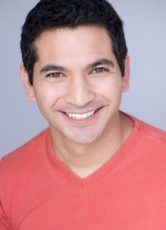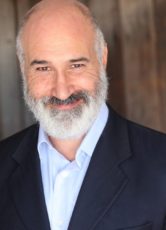
Performance coach Anna Reynolds has a fascination with understanding how people function at the deepest levels. Trained in neuro-linguistic programming, she uses methodologies and coaching practices to support her clients to embrace uncertainty and express complexity. “My skill lies in facilitating transparent conversations that evoke wider and deeper perspectives whereby you free your creative capacity,” she explains. “In this sense, a coaching conversation is a deeply creative act.” In addition to coaching film, theater, and TV actors, Reynolds’ clients include individuals working in the tech, fashion, fine art, music, and design industries. Based in London, her goal is to support her clients as they develop the skill of transforming themselves from the inside out.
Reynold’s website states, “Your persona has got you this far. Your perspective on life, your beliefs, your values, they have all played a part in your success. And now, they may very well be what is holding you back.” Her students credit her for an increased sense of purpose, more opportunities in alignment with their deepest desires, greater courage of their convictions, an enhanced ability to handle ambiguity and complexity, and an overall richer experience of life. She’s noticed that as she helps actors to evolve in their personal life, it has a positive effect on their acting abilities.
Confidence and courage
In an Actors Anonymous UK interview, Reynolds revealed some of the reasons that her clients turn to her for help. “Initially I tend to hear the word confidence a lot—people wanting more confidence, and the context of that tends to be in a casting situation or networking situation,” she says. They particularly seek her when they find themselves in a high-stakes situation. “That’s when people tend to sort of contract internally and they tend to sort of say, ‘I want more confidence in those moments.’” In turn, Reynolds tells her clients the issue isn’t necessarily related to confidence. “I think that confidence is a result; it’s not a requirement. So we sort of have confidence because we’ve done the thing we didn’t think we could do or said the thing which was uncomfortable to say. And so it’s almost in hindsight—we look back and go, ‘Gosh, that was okay, actually. I didn’t collapse or die.’” With such experiences, people increasingly grow more confident.
She clarifies that what her clients tend to actually want in high-stakes instances is more courage. “It’s sort of about recognizing if I’m in a situation that is unknown. So if I’m going into a casting situation, I don’t know what’s going to happen on the other side of the door. Perhaps I need a little bit of courage just to be able to meet the unknown.” Reynolds finds it’s important for people to change their relationship with fear. That is, to understand that any time someone is facing the unknown, he or she should expect fear to show up. “It’s about becoming okay with fear, and not feeling like I have to run the opposite direction or suppress it or control it. It’s just kind of, well, that tells me I’m probably in a space of growth actually—probably in the space where something a bit more interesting is going to happen. If I can just recognize this is okay, this is natural; it’s just my mind is kind of going, ‘I don’t know what’s happening.’ And to bring a little courage to that is probably very useful.”
Managing anxiety
Reynolds also has clients who seek to manage their performance anxiety, say, if an agent or casting director is coming to watch them perform in a play. In such instances, she notices a familiar theme. “Running underneath a lot of these conversations, there’s a wider conversation which is about power. And that’s not what people tend to sort of talk about or phrase. But when you scratch the surface a little bit, it tends to be a little bit around, ‘I feel powerless in this industry.’” She often hears her actor clients bring up the word “gatekeepers” as in “There are gatekeepers I’m having to get past.” Reynolds explains: “This is why I say how you see the world is what is shaping your experiences of the world … So the person who is kind of going into battle in a casting—and there are a lot of actors out there who are doing that—it’s like, ‘I’ve got to beat, I’ve got to win this.’ It’s like,’They’ve got power over me, so I need to try and dominate’ and whatever it is. This isn’t a conscious thing by the way; this is sort of the deeper narrative that I see actors often telling themselves. ‘There is something I need to survive, there’s a fight, there’s a battle, and I do need to survive it.’”
Reynolds calls such narratives “deeply unhealthy.” “I think the more valuable conversation maybe is like, ‘What has to happen for me to be able to thrive in this business?’ Rather than it being a surviving thing—because that’s so much about crumbs, and that tends to be born of I’m-not-good-enough thinking. But if you can go into a room and it’s like there’s a human being in front of you; they just happen to be called a casting director, it’s much more of a level playing field and much more interesting—to just meet the person in front of you.”
Being in the moment
Reynolds believes being fully present in the moment profoundly impacts a person’s relationships and career. “I do spend a long time with clients just to help them kind of just notice what is going on in this moment, what is actually really here, what is occurring, what you can notice what’s occurring within your own thinking right now in this moment. Can you notice what’s occurring in the other person that you’re with? Can you meet the other person that you’re with beyond the story of who you think they are? Can you be open to being seen beyond the story of who you think you are? It’s kind of going very very deeply into the present moment, and this is what we call presence.
And it’s very compelling when you see, when you meet somebody who just has real presence. It’s very, very compelling, and I think the more that you can kind of be with the person who’s in front of you and [be] less concerned about what’s happening within you, there’s a greater chance that you are going to progress whether you’re an actor or whatever it is in life. There’s a greater chance, I think, because it’s like being able to evolve beyond this self-centered perspective and into serving the person I’m with—or actually, I like to go beyond that and kind of think serving the moment itself. What does this moment actually need? What is being asked of you and I in this moment?”




